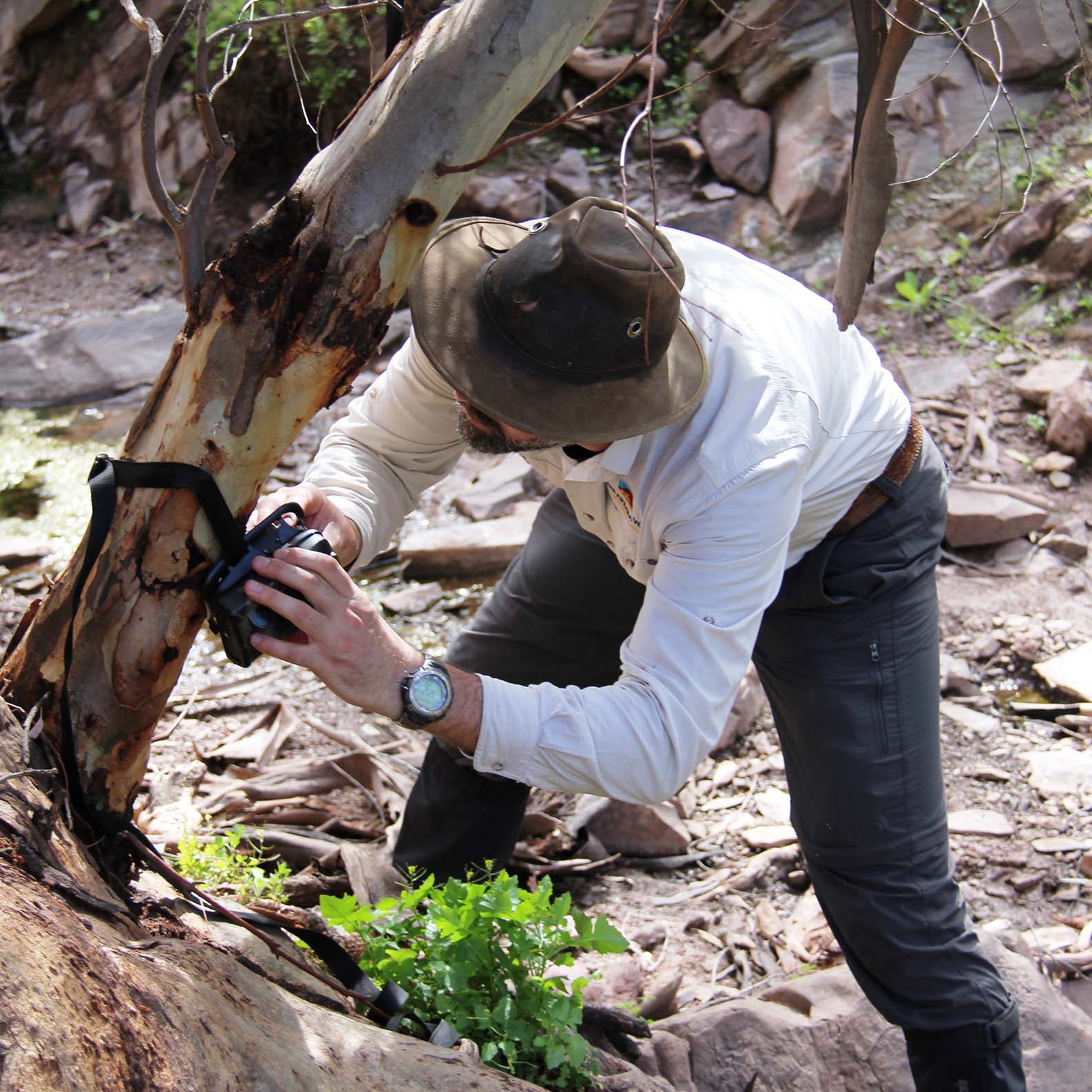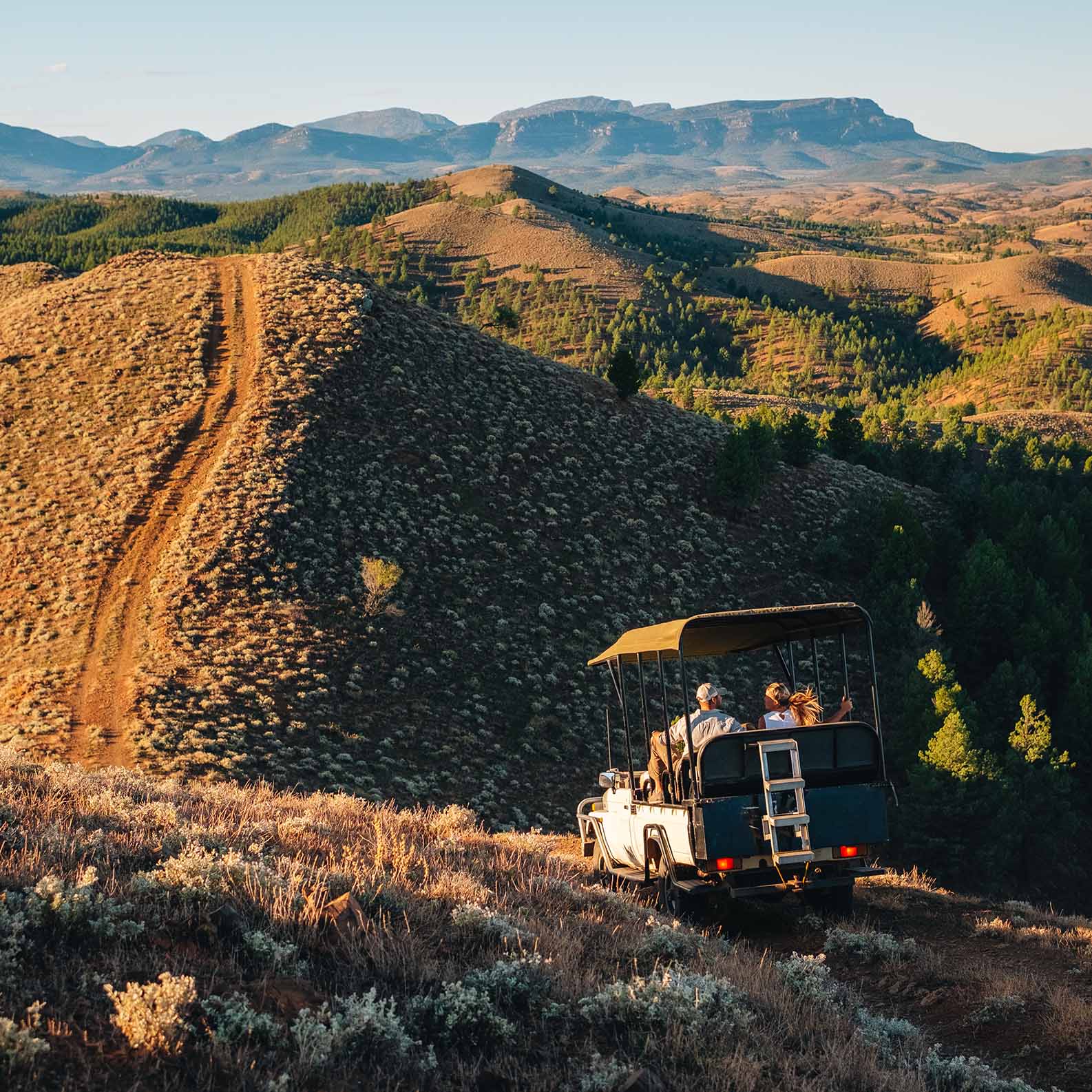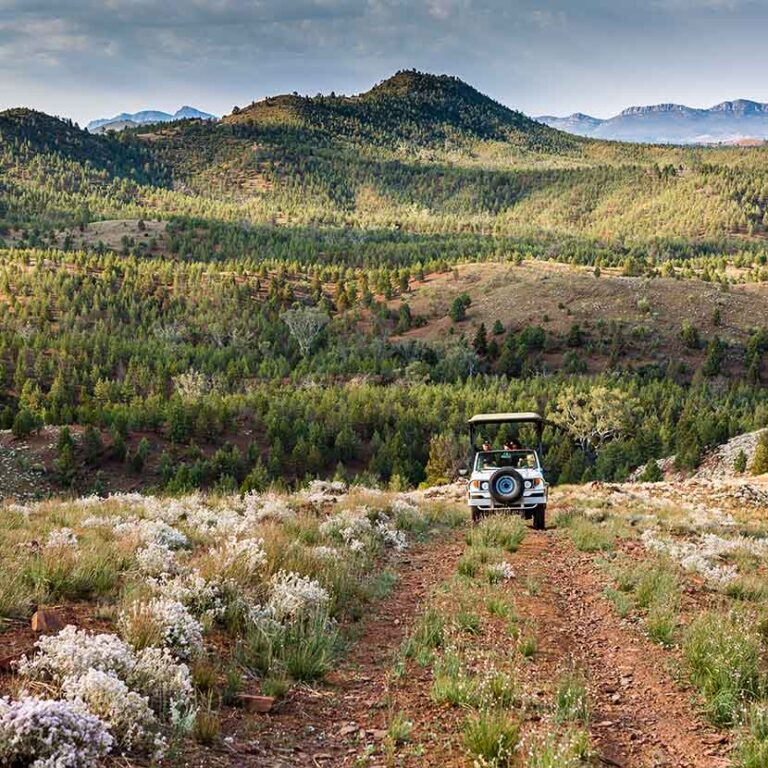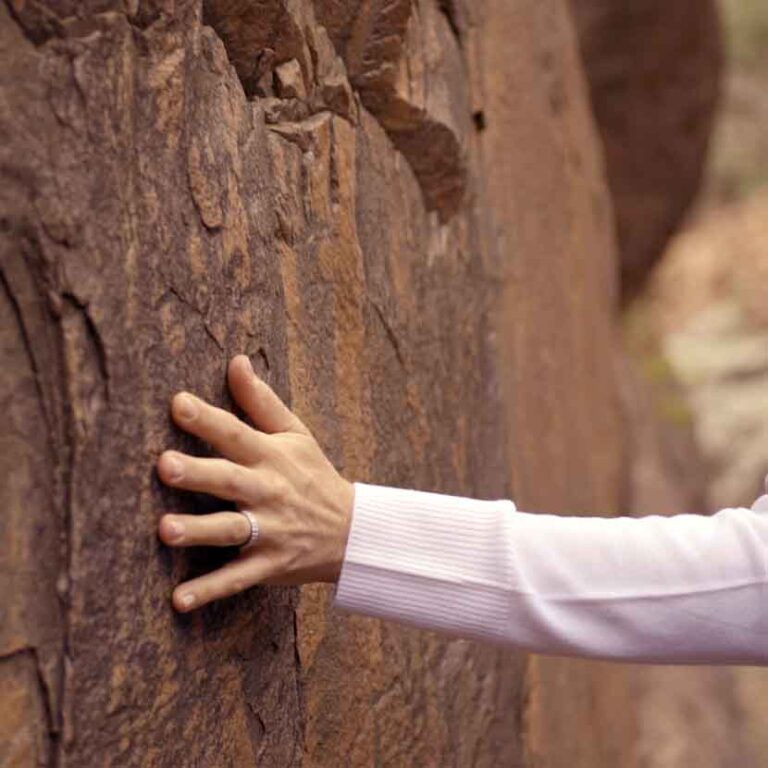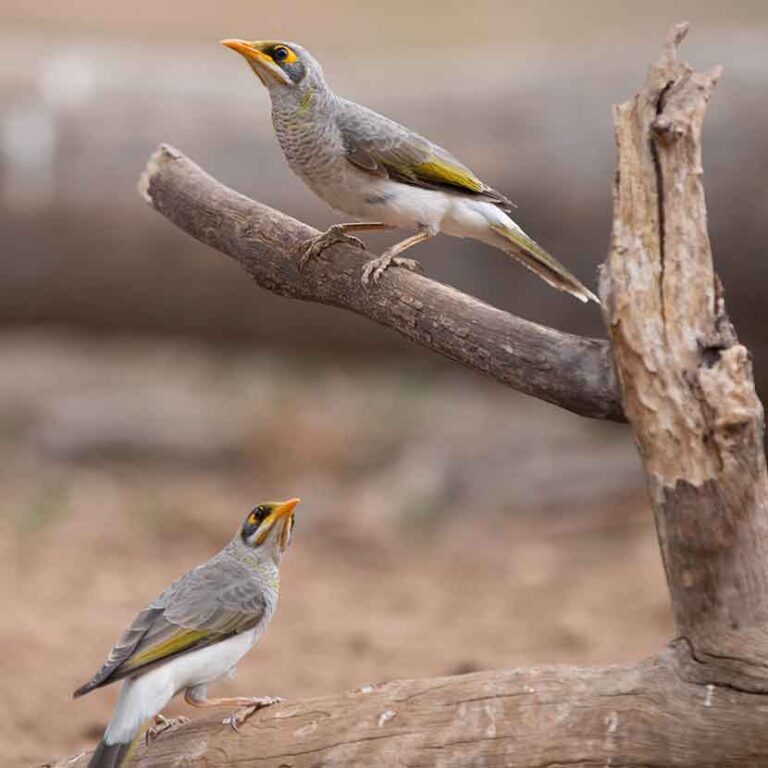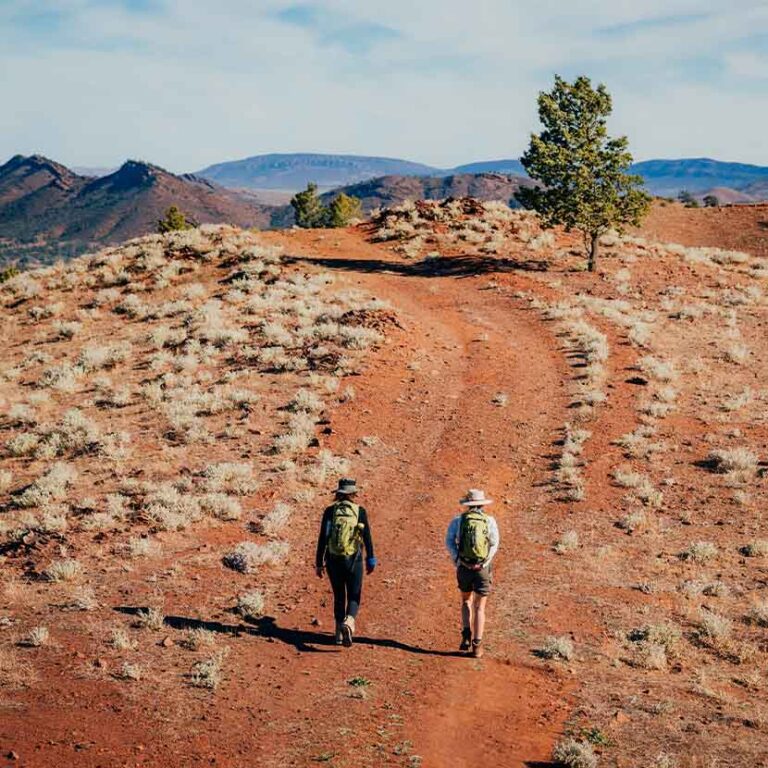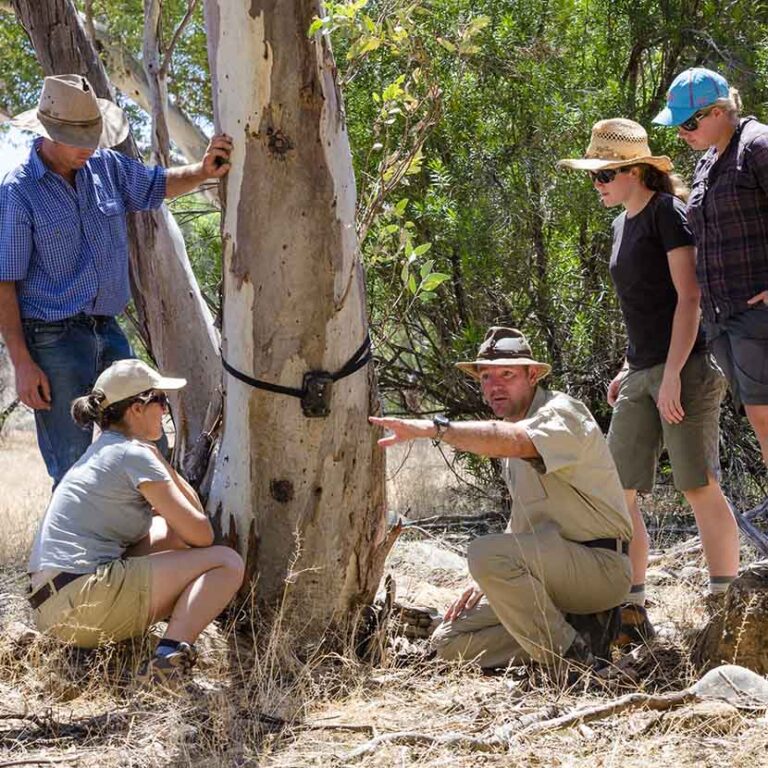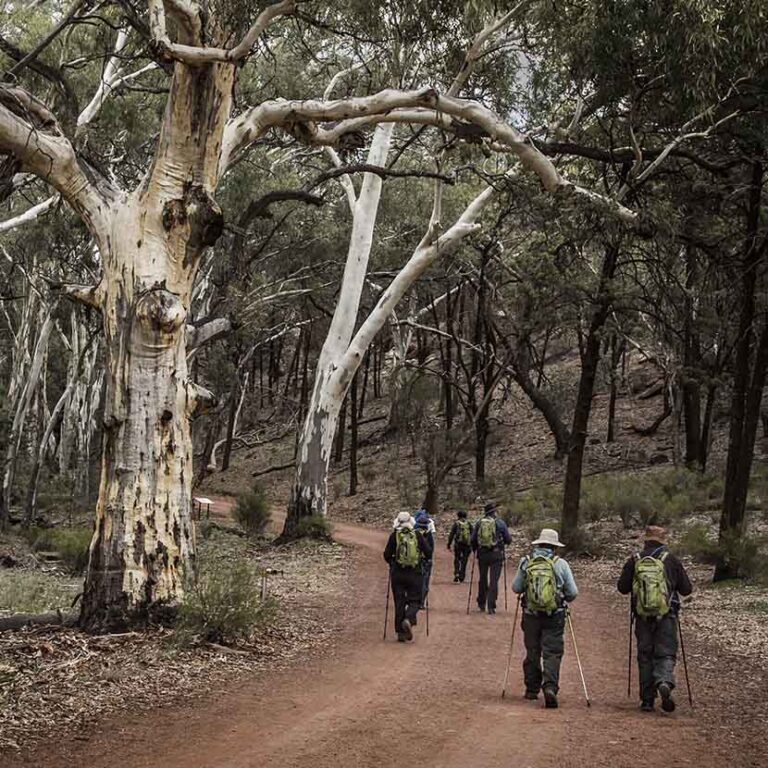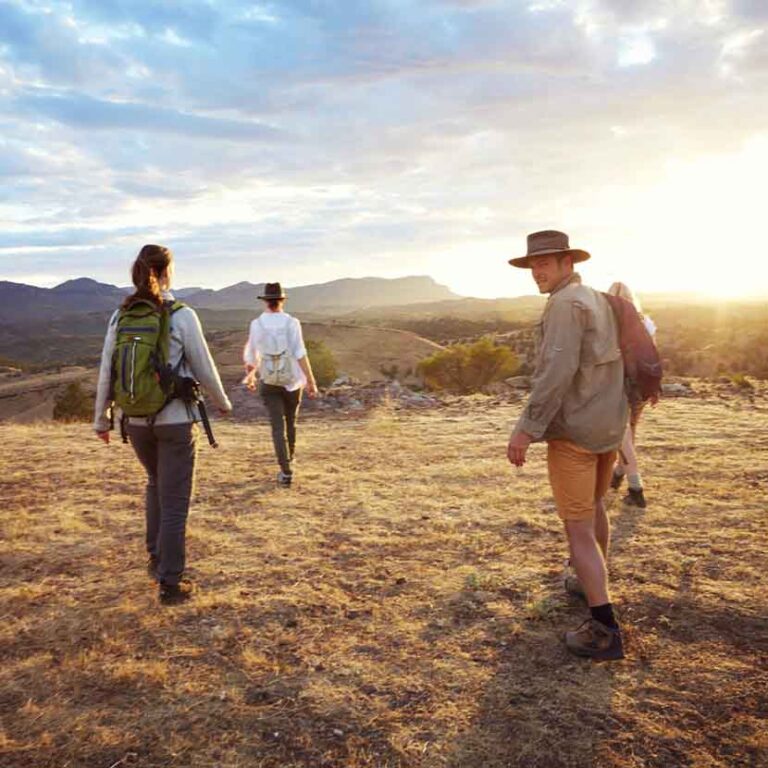Arkaba
People & Purpose
Since 2009, Wild Bush Luxury’s dedicated team has transformed Arkaba Station in the Flinders Ranges of South Australia from an ecologically degraded sheep station into a 60,000-acre thriving private wildlife conservancy. View case study
“Guests come to immerse themselves in the bush landscape and end up becoming part of Arkaba’s conservation story. Once you start engaging in the environment – once you start being a part of it – you want to stand up for it.”
CHARLIE CARLOW, FOUNDER
Arkaba’s future is inextricably linked with the health of the environment, with the ultimate mission to conserve this natural habitat.
Conservation programs – some in conjunction with the National Parks and Wildlife Service – have focused on feral species eradication, and on revegetating and rehabilitating the ancient yet fragile landscape.
Using both aerial and ground-based control methods, more than 3,000 feral goats and hundreds of foxes and feral cats have been removed and the rabbit population has been greatly reduced. This has eased the destruction of native vegetation and, in turn, the competitive grazing pressure on native animals.
This work has already yielded exciting results, with the re-establishment of two flourishing colonies of near-threatened yellow-footed rock wallabies, the sighting of a hitherto regionally extinct brush-tailed possum and a western quoll – extinct in South Australia for 100 years – on the property.
“The prime motivation behind what we do is to open the hearts and minds of our guests through the activities our guides conduct within this incredible environment, for our guests to reconnect with the land and see the landscape in a new light, with deeper understanding.”
CHARLIE CARLOW, FOUNDER
Inspired and united by this conservation story, Arkaba’s staff – field guides, chefs and housekeepers alike – share with guests their passion for the landscape and its wildlife.
They invite guests to actively participate in conservation work such as tracking and identifying species, and use habitat, geology and behavioural cues to genuinely immerse guests in the story of the bush.
A focus on cultural heritage sees careful conservation of the heritage 1851 Arkaba homestead and woolshed. Both buildings have been lovingly restored, complete with interior décor and artwork by renowned local wildlife illustrator, Rosemary Woodford-Ganf.
Arkaba’s field guides offer guests an inspiring experience, illuminating the land’s living history from its ancient rock formations and Ediacaran fauna (the earliest forms of multi-celled life on earth!), through tens of thousands of years of Aboriginal habitation; tracing the tracks of European explorers and the trials and tribulations of the pastoralists; to the modern-day rehabilitation of the natural environment.
OUR LITTLE WHITE BOOK
The Luxury Lodges of Australia brochure has become a treasured and widely recognisable ‘go to’ for Australian experiential luxury, enjoyed both online and in printed form at our lodges. The brochure is available to view or download in eight languages below.


